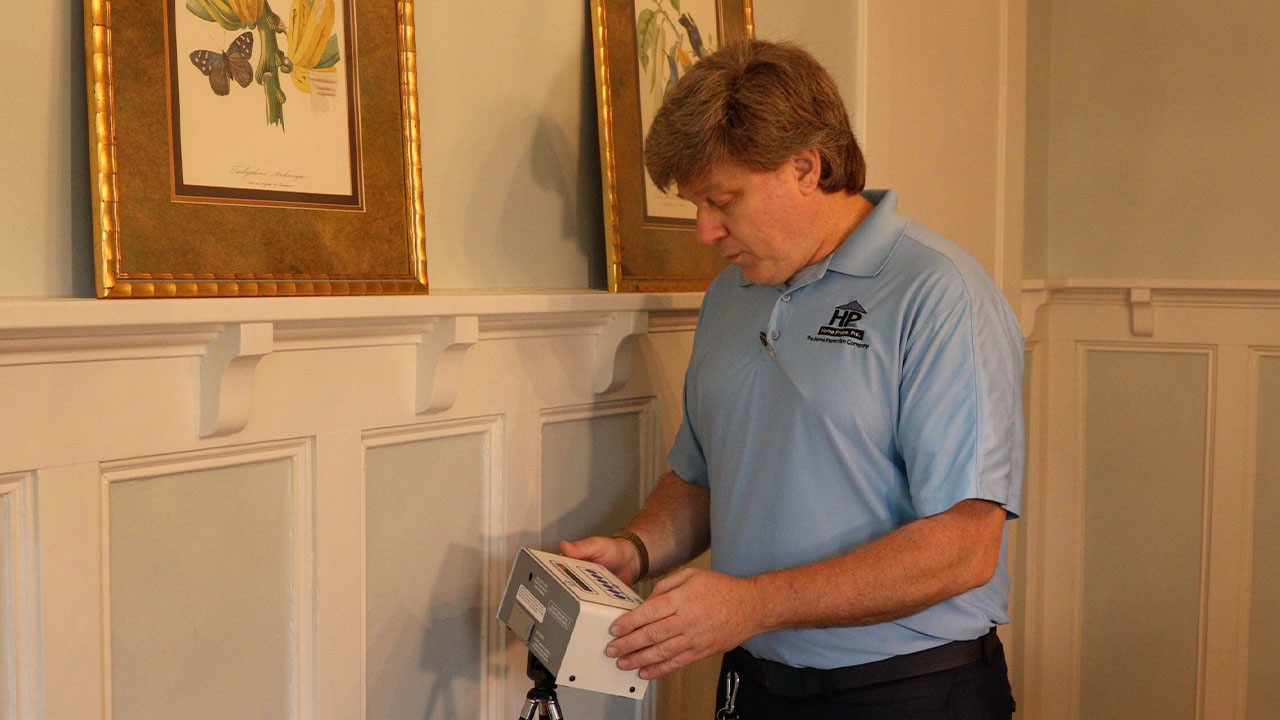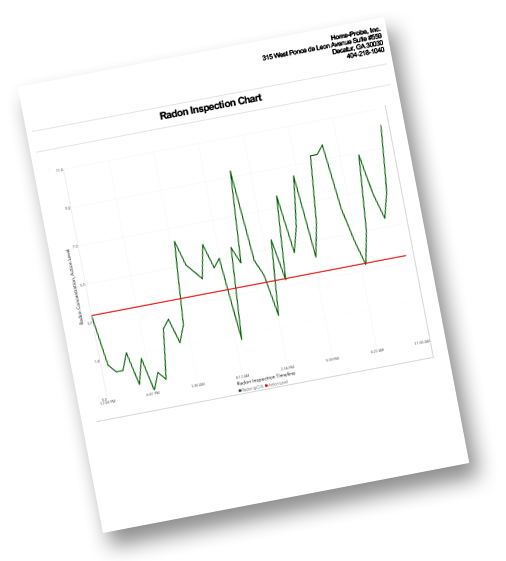Radon Test
Did you know that dangerous levels of radon gas can be lurking in your home without you even knowing? The silent, odorless gas occurs as the soil breaks down. Smaller radioactive elements can lodge themselves in the lining of the lungs and lead to cancer.
Cancer from radon accounts for more deaths every year than drunk driving.
The Environmental Protection Agency (EPA) recommends all homes be tested in a real estate transaction and after any significant changes or renovations. If a home tests higher than 2.0piC/l, it should be retested in two years.

What’s Included in a Radon Test?
A short term radon test should be administered by a professional with certification to ensure the test is an accurate reflection of the home’s condition. Home-Probe has Field Service Technicians who perform the radon testing and ensure compliance with our protocol, which written and managed by a certified Radon Measurement Professional by the National Radon Proficiency Program (NRPP). Equipment must be maintained, calibrated and QA/QC tested regularly.
Proper placement is critical to ensuring an accurate test. When a professional tests a home for radon, they will place a device that detects radon in the air in an area of the home the owners will likely spend the most time in such as the den, living area, bedrooms or workspaces. Radon should be tested in the lowest habitable level of the home, including an unfinished basement.
For short term tests, most typical in a real estate transaction, the EPA protocol requires 48 hours of data. That timeframe can cause issues in real estate transaction timelines. Luckily, Home-Probe has created a flexible process that allows us to begin the radon testing before the inspection and possibly the same day your offer is accepted.

